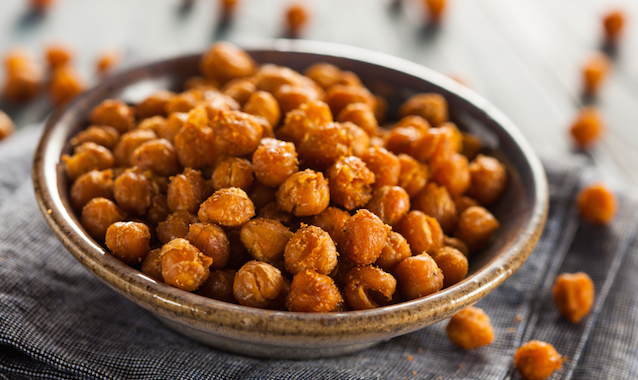Ideas to Help with Anxiety Naturally
August 13, 2020
Let’s face it, most of us are feeling more anxiety now, especially if we never experienced it before. If your anxiety is overwhelming and taking control of your day, you should get to your physician or mental health professional right away. However, if you are one of the many who are experiencing some mild anxiety and a little extra stress, there are various things you can try that may help reduce it naturally.
Meditation
Mindful.org says that meditation can soften feelings of anxiousness and reduce stress. Mindfulness brings attention to your body and breathing. Often deep conscious breathing alone can help us feel calmer. Simply becoming aware of our thoughts, acknowledging them, and learning how to release them can often ease anxious feelings.
While there’s no fast cure for anxiety, meditation can help us calm down a racing brain. It can help turn off repetitive thoughts by focusing on the breath. Even a few minutes of meditation can make a difference. Try some apps with guidance to help you meditate like Calm, Insight Timer, or Headspace.
Herbs and Supplements
Some people prefer to try herbs before prescribed medicine. Of course, this should be done with your healthcare provider’s knowledge. If you are on any prescribed medications, you should know that some herbs can interfere with them, so check with a professional first. Some supplements you may want to consider are:
- Ashwagandha, known as an adaptogen, this herb can regulate anxiety and reduce stress. Source Medical News today)
- Amino acids like L-lysine and L-arginine have been shown to have a mild effect on stress and anxiety. (Source)
- Magnesium plays many roles in how our bodies function. Although no studies have completely shown magnesium helps with stress and anxiety, many people take it and it is safe when taken as directed. Be sure to check with a doctor especially if you have any kidney issues.
- Chamomile is known for its calming properties and is very popular as a tea. However, chamomile may cause allergic reactions if you are already allergic to ragweed and certain flowers and can interfere with certain medications like blood thinners, so ask a doctor.
- Omega fatty acids may help lower cortisol levels and ease anxiety according to Reader’s Digest. Eating fatty fish or taking fish oil supplements both may help.
Essential Oils
When we think of lavender, we think of a calming aroma, a serene purple, and a dreamy scent. That’s for a reason! Even inhaling lavender can help relax us, so keeping a bottle of pure lavender oil around is a great and easy idea. You can also diffuse lavender or simply place a few drops near your pillow at night. Lavender can also be added to massage oils, and teas can be made from lavender leaves.
Many other essential oils besides lavender that can ease anxiety. Consider Holy Basil, Sweet Basil, Bergamot, Rose, Vetiver, Frankincense, Clary Sage , Ylang Ylang, Lemon Balm, and Patchouli. Follow directions on the bottle, and never apply to skin undiluted.
Don’t take oils internally unless you are working for a certified aromatherapist. Most oils work simply by the olfactory senses. Just smelling them does the trick! Place some on a cotton ball, or on diffuser stones, or on sachets and keep them nearby. Most oils work well in a diffuser too, though if you have pets, be sure to check first that they are safe.
Exercise
For many people exercise is the ultimate anti-anxiety remedy. Exercise releases those feel-good endorphins, works up a good sweat (yes, this is good!), and gives us a sense of calm after we’re done. And get this … even 5 minutes of aerobic exercise can begin to stimulate anti-anxiety effects according to the ADAA.
Exercise usually helps us sleep better, which in turn helps us feel less stressed. It also stabilizes moods, increases self-esteem, and decreases those feelings of tension. Not everyone’s anxiety responds well to exercise, so even if it doesn’t reduce your anxiety, it helps in other ways. Don’t stop exercising, just look into other remedies that may work better for your anxiety.
Ditch the caffeine
Well and Good says that caffeine is not for everyone and especially not for anyone with anxiety. Caffeine can make you feel moody, nervous, anxious, and not sleep as well. If you are one of those all-day coffee drinkers and you have anxiety, consider cutting down to just one cup in the morning. See how you feel. It could make a huge difference in just a few days!
Of course, caffeine can also cause headaches from withdrawals, so cut down slowly. Replace your other coffee time, with tea (caffeine-free), water, or a fruit-laced water to stay hydrated.
Cut sugars
All foods cause our blood sugar levels to go up then down. Sugar causes larger surges follows by drastic reductions which can mimic anxiety, or even a panic attack, according to Harvard Health Publishing. Your best bet, not just for reducing anxiety but for better health in general, is to eat a clean diet without processed foods. Lean protein, balanced with good fats and complex carbs is a good choice for most people.
Adding in other methods like deep breathing, yoga, prayer, talk therapy, and journaling may all help reduce mild anxiety. Different methods work for different people. Try a few and see how you feel. Of course, if your anxiety gets overwhelming, see a professional.





